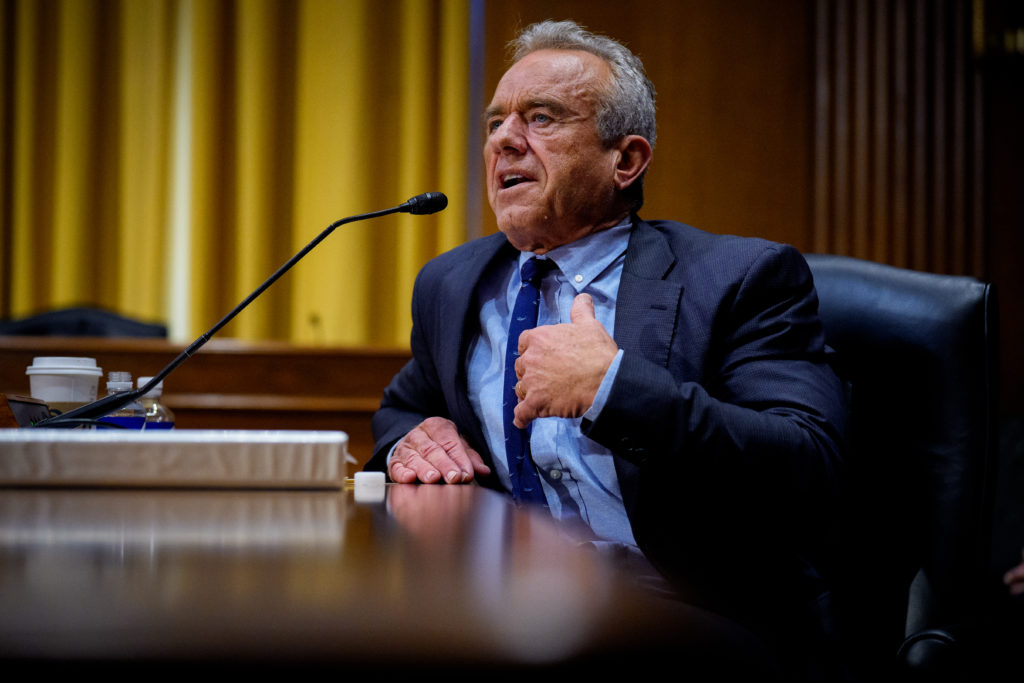Is the Make America Healthy Again Plan Enough?

Introduction
The Make America Healthy Again (MAHA) commission has recently proposed a plan to address the root causes of childhood chronic disease. With 128 ideas, this plan aims to make a positive impact on the health of kids in the United States. However, there are concerns about the lack of details provided by the commission and other contradicting moves made by the Trump administration. Despite the good intentions, the effectiveness of this plan is being questioned by critics.
The Plan Details
The MAHA commission's plan includes a variety of measures such as promoting healthy eating habits, increasing physical activity, and providing access to healthcare services for children. It also involves educating parents and caregivers on how to raise healthier kids. However, the lack of specifics and clear implementation strategies have raised doubts about the success of these initiatives. Some critics also point out that other policies implemented by the Trump administration, such as budget cuts to healthcare programs, may hinder the progress of this plan.
The Impact
While the MAHA plan has good intentions and addresses important issues, its effectiveness and feasibility are still uncertain. The lack of details and potential conflicting policies raise concerns about the potential impact on the health of children. It is important for the commission to provide more specific and concrete plans for implementation in order to address these concerns and ensure the success of their initiatives. Only with a well-structured and comprehensive plan can we
About the Organizations Mentioned
Make America Healthy Again Commission
The **Make America Healthy Again (MAHA) Commission** is a federal initiative established by President Donald Trump in February 2025 to address the escalating childhood chronic disease crisis in the United States. Chaired by Health and Human Services Secretary Robert F. Kennedy Jr., the commission includes 14 members from key federal agencies, including the NIH Director and Secretary of Education, with a mandate to study and combat chronic diseases affecting children such as obesity, diabetes, neurodevelopmental disorders (e.g., autism), allergies, autoimmune diseases, and mental health disorders[1][2][7]. The Commission’s foundational task was to produce the *Make Our Children Healthy Again Assessment*, released in May 2025. This report outlined the scope of the crisis, identified contributing factors, and proposed mechanisms driving the rise in chronic conditions. Key drivers identified include poor diet, exposure to environmental chemicals, sedentary lifestyles, stress, and overmedicalization. The Commission emphasizes transparency and rooting out conflicts of interest in government health policies. It advocates for fresh approaches in nutrition, physical activity, environmental hazard reduction, and medication practices, with a focus on preventative, alternative, and holistic health strategies[1][3][5]. Noteworthy aspects include the Commission’s controversial stances on public health measures such as water fluoridation, vaccines, and food additives. Under Kennedy’s leadership, the CDC ceased recommending COVID-19 vaccines for children and pregnant women in mid-2025, and the Commission has advocated for removing artificial food dyes and restricting Supplemental Nutrition Assistance Program (SNAP) benefits from being used on processed foods and candy. These positions have drawn criticism from mainstream health experts who defend established public health practices[6]. The Commission operates through interagency collaboration, leveraging federal expertise to craft comprehensive policy recommendations. Its ongoing strategy, expected to be released following its initial assessment, aims to reshape America’s approach to childhood chronic disease prevention and health promotion, emphasizing research in nutrition, lifestyle interventions, and precision toxicology[
Trump Administration
The **Trump Administration** refers to the executive branch of the United States government under President Donald J. Trump, covering two non-consecutive periods: his first term from 2017 to 2021 and his second term beginning in 2025. As an organization, it is responsible for executing federal laws, shaping public policy, and managing national affairs during its tenure. During the **first Trump Administration (2017–2021)**, the administration pursued a wide-ranging agenda focused on immigration reform, economic nationalism, deregulation, judiciary appointments, and foreign policy shifts. Key actions included building and expanding the U.S.-Mexico border wall—completing 458 miles by January 2021—and implementing strict immigration policies such as travel bans from several predominantly Muslim countries and rescinding the DAPA amnesty program[2]. The administration withdrew the U.S. from the Trans-Pacific Partnership trade deal, renegotiated NAFTA into the USMCA, and signed the "Buy American and Hire American" executive order to prioritize American workers[1][3][5]. Judicially, Trump appointed three Supreme Court justices—Neil Gorsuch, Brett Kavanaugh, and Amy Coney Barrett—significantly influencing the federal judiciary with over 200 judicial appointments[5]. The administration also focused on military expansion, combating ISIS, addressing the opioid crisis, and responding to the COVID-19 pandemic with vaccine development support[5]. Foreign policy was marked by controversial decisions including troop withdrawals from northern Syria, reinforced support for Saudi Arabia, and tensions with Iran and North Korea[4]. The administration faced two impeachments: first in 2019 over Ukraine dealings and again in 2021 following the January Capitol riot; Trump was acquitted by the Senate both times[4][5]. After losing the 2020 election, Trump returned for a **second term starting in 2025**, continuing his policy priorities with new regulatory changes and political appointments[6][8]. The Trump Administration
















